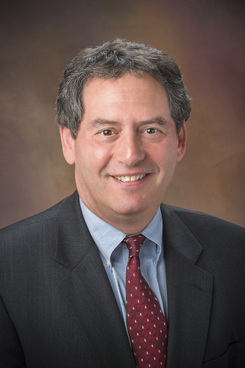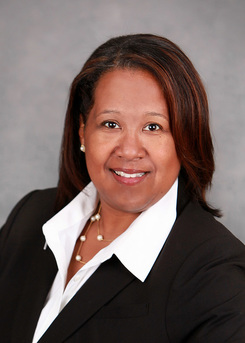'Kangaroo Court': Lawyers Weigh in on Betsy DeVos' Proposed Title IX Policies for Handling Sexual Misconduct on Campus
If implemented, Education Secretary Betsy DeVos' proposed changes to Title IX's campus sexual misconduct policies would reduce the liability of schools when investigating and pursuing cases against alleged perpetrators, who would be considered innocent until proven guilty.
September 12, 2018 at 12:35 PM
10 minute read
 U.S. Secretary of Education Betsy DeVos. Photo: Gage Skidmorevia Wikimedia Commons.
U.S. Secretary of Education Betsy DeVos. Photo: Gage Skidmorevia Wikimedia Commons.
Lawyers are in two minds about potential implications of U.S. Secretary of Education Betsy DeVos' move to draft changes to Obama-era policies for schools handling sexual misconduct allegations under the Title IX federal law.
While most attorneys favor concrete rules over the general guidance provided by the Obama administration, key issues such as jurisdiction, standard of evidence and equal protection divide them. Some say the rules will silence and intimidate victims, while others believe the proposal would provide due process for accused students facing potentially life-altering penalties.
“My chest was pounding,” said trial lawyer Andrew T. Miltenberg of Nesenoff & Miltenberg of New York after leaving a Title IX hearing on Sept. 6. “I thought I was in some sort of charade or show trial. And I could not believe, even though I should now be used to it, the abuses of process and the complete 'anything goes' atmosphere. As long as we have that, no one should be happy.”
The main issue, according to attorneys, like Miltenberg, involved in cases alleging sexual assault on campus: feeling they're participating in a “circus” of a hearing conducted by an “ill-equipped and ill-trained” investigative panel.
Click here to see how the proposed Title IX guidelines compare to the old.
'Two Forces'

Jeremy Mishkin of Montgomery McCracken Walker & Rhoads in Philadelphia.
Last year, when the U.S. Department of Education rescinded a 2011 Dear Colleague letter that had served as standalone guidance for universities and colleges investigating and pursuing sexual assault claims, many took that as a signal that new rules were coming.
“The intent behind [the letter] was to make it less difficult for a person complaining about a violation to get relief,” said Jeremy Mishkin of Montgomery McCracken Walker & Rhoads in Philadelphia.
But this, he said, caused a “dilemma.”
“People accused of these things quite often felt they were, for all intents and purposes, being charged with a crime,” Mishkin said.
According to Mishkin, students accused of sexual assault often ask whether they have the right to confront their accuser or to see the evidence against them.
“The answer is, in many cases, [is] 'No. You don't,'” the attorney said.
Mishkin called the Dear Colleague letter a “noble effort,” but said it might have conflated the notion of protecting a victim's mental and physical health with the adjudication process.
Read the 2011 Dear Colleague letter:
 Kelley Hodge of Elliott Greenleaf.
Kelley Hodge of Elliott Greenleaf.“You want to be completely supportive of the victim, but at the same time, as a society, we want those who are accused of acts that are criminal to have due process of law. Those are two forces that are very fundamental American ideals,” said Mishkin.
Elliott Greenleaf attorney and former Title IX coordinator for the University of Virginia Kelley Hodge said she finds the idea of giving schools the option of using clear and convincing standard of evidence “concerning.”
“Is that really fair and appropriate across the board?” Hodge asked. “It can create in my opinion levels of inconsistency and inequity that are going to potentially undercut the essence of what Title IX is supposed to be.”
'Kangaroo Court'
Boston criminal defense attorney Norman Zalkind of Zalkind Duncan & Bernstein, who's represented both complainants and respondents, is dissatisfied with what he sees as a widespread “presumption of guilt” in the Title IX arena.
“If somebody is sexually violated, attacked or harassed they should be protected, but there should be protections on both sides because you're asking for very serious punishments,” Zalkind said.
He calls the system a “kangaroo court” that puts young defendants on trial with little due process. Instead of the current process, Zalkind hopes for one requiring a “clear and convincing” standard of evidence.
“There's a bias. Students' lives have been ruined and their families have gone broke over this, so there should be better protections,” he said. ”This isn't like drinking on campus. This isn't like taking a drug or causing a little damage to the house. These are very serious charges.”
According to Zalkind, schools frequently suspend or expel the accused, and leave them with a record that can significantly hinder their academic and professional lives.
“A lot of times, they're talked to before they have a chance to seek counsel or an adviser, and they don't know what to say,” he said. “They're 18 years old. They've been babied by their parents and they're not ready for this.”
This content has been archived. It is available through our partners, LexisNexis® and Bloomberg Law.
To view this content, please continue to their sites.
Not a Lexis Subscriber?
Subscribe Now
Not a Bloomberg Law Subscriber?
Subscribe Now
NOT FOR REPRINT
© 2025 ALM Global, LLC, All Rights Reserved. Request academic re-use from www.copyright.com. All other uses, submit a request to [email protected]. For more information visit Asset & Logo Licensing.
You Might Like
View All
Brownstein Adds Former Interior Secretary, Offering 'Strategic Counsel' During New Trump Term
2 minute read
Weil, Loading Up on More Regulatory Talent, Adds SEC Asset Management Co-Chief
3 minute read
FTC Sues PepsiCo for Alleged Price Break to Big-Box Retailer, Incurs Holyoak's Wrath
5 minute read
Supreme Court Will Hear Religious Parents' Bid to Opt Out of LGBTQ-Themed School Books
Trending Stories
Who Got The Work
J. Brugh Lower of Gibbons has entered an appearance for industrial equipment supplier Devco Corporation in a pending trademark infringement lawsuit. The suit, accusing the defendant of selling knock-off Graco products, was filed Dec. 18 in New Jersey District Court by Rivkin Radler on behalf of Graco Inc. and Graco Minnesota. The case, assigned to U.S. District Judge Zahid N. Quraishi, is 3:24-cv-11294, Graco Inc. et al v. Devco Corporation.
Who Got The Work
Rebecca Maller-Stein and Kent A. Yalowitz of Arnold & Porter Kaye Scholer have entered their appearances for Hanaco Venture Capital and its executives, Lior Prosor and David Frankel, in a pending securities lawsuit. The action, filed on Dec. 24 in New York Southern District Court by Zell, Aron & Co. on behalf of Goldeneye Advisors, accuses the defendants of negligently and fraudulently managing the plaintiff's $1 million investment. The case, assigned to U.S. District Judge Vernon S. Broderick, is 1:24-cv-09918, Goldeneye Advisors, LLC v. Hanaco Venture Capital, Ltd. et al.
Who Got The Work
Attorneys from A&O Shearman has stepped in as defense counsel for Toronto-Dominion Bank and other defendants in a pending securities class action. The suit, filed Dec. 11 in New York Southern District Court by Bleichmar Fonti & Auld, accuses the defendants of concealing the bank's 'pervasive' deficiencies in regards to its compliance with the Bank Secrecy Act and the quality of its anti-money laundering controls. The case, assigned to U.S. District Judge Arun Subramanian, is 1:24-cv-09445, Gonzalez v. The Toronto-Dominion Bank et al.
Who Got The Work
Crown Castle International, a Pennsylvania company providing shared communications infrastructure, has turned to Luke D. Wolf of Gordon Rees Scully Mansukhani to fend off a pending breach-of-contract lawsuit. The court action, filed Nov. 25 in Michigan Eastern District Court by Hooper Hathaway PC on behalf of The Town Residences LLC, accuses Crown Castle of failing to transfer approximately $30,000 in utility payments from T-Mobile in breach of a roof-top lease and assignment agreement. The case, assigned to U.S. District Judge Susan K. Declercq, is 2:24-cv-13131, The Town Residences LLC v. T-Mobile US, Inc. et al.
Who Got The Work
Wilfred P. Coronato and Daniel M. Schwartz of McCarter & English have stepped in as defense counsel to Electrolux Home Products Inc. in a pending product liability lawsuit. The court action, filed Nov. 26 in New York Eastern District Court by Poulos Lopiccolo PC and Nagel Rice LLP on behalf of David Stern, alleges that the defendant's refrigerators’ drawers and shelving repeatedly break and fall apart within months after purchase. The case, assigned to U.S. District Judge Joan M. Azrack, is 2:24-cv-08204, Stern v. Electrolux Home Products, Inc.
Featured Firms
Law Offices of Gary Martin Hays & Associates, P.C.
(470) 294-1674
Law Offices of Mark E. Salomone
(857) 444-6468
Smith & Hassler
(713) 739-1250










